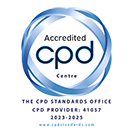30 April 2013
Visualising the Invisible: Atomic-Molecular Models in 19th-Century Chemistry
Organised by:
SCI's London Group
University College London
Registration Closed
This event is no longer available for registration.
Synopsis
Chemists and physicists started developing significant atomic theories from around 1800, making many attempts to depict atoms and molecules even though they had no ability to observe them directly. Many philosophers and scientists raised objections to such attempts, emphasising the futility of attempting to know what is unknowable by experience. Still, especially in organic chemistry, scientists often used visual models of molecules while acknowledging their epistemological limitations. Chemists involved in molecular modelling did not necessarily take their models literally.
Initially the models were used as convenient schemata to help with the classification of myriad organic substances and to derive some clues about their constitution. When some of the models proved useful, suspicion arose that they must not be wholly fictitious. The unification of some of these successful models in the 1850s and 1860s formed the foundations of modern chemistry. It was only then, half a century after the publication of Dalton's atomic theory, that chemists reached a consensus on the truth of such basic items of chemical knowledge as the H2O formula for water.
But can we believe a model to be true just because it is useful, even when its truth cannot be confirmed directly by experience?
There are many conflicting answers to this question, which constitute the philosophical debate on scientific realism. Here, Professor Chang will talk about his own view, that science progresses better by cultivating a variety of useful models simultaneously, rather than seeking the ultimate truth about an unobservable realm.
Programme
Accessibility Grants
SCI accessibility grants are available to support SCI members with disabilities, long term health conditions, those who require a carer, and members who are nursing parents to attend SCI events. Download an application form to apply for a grant.
Venue and Contact
UCL
Department of Chemistry
University College London
20 Gordon Street
London, WC1H 0AJ
Please click here for a location map.
The lecture will be preceded by tea/coffee in the Nyholm room and followed by a Mixer in the Nyholm Room.
SCI Comms Team
Tel: 0207 598 1594
Email: Communications@soci.org
Fees
Become an SCI Member and save on this and future events
See Membership OptionsSign up as an Event Member to join this event. SCI Full or Student Members receive discounts on event registrations
Booking Process/Deadlines
CPD Info
All delegates attending this meeting are able to claim CPD points.
Additional Info
Speaker
Professor Hasok Chang
University of Cambridge





